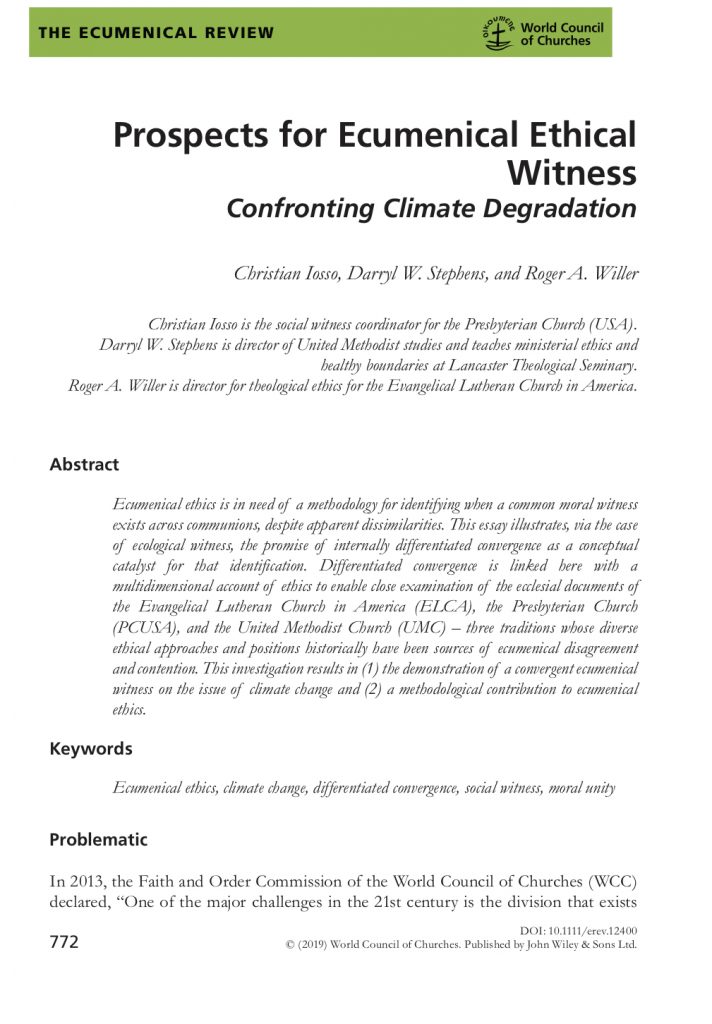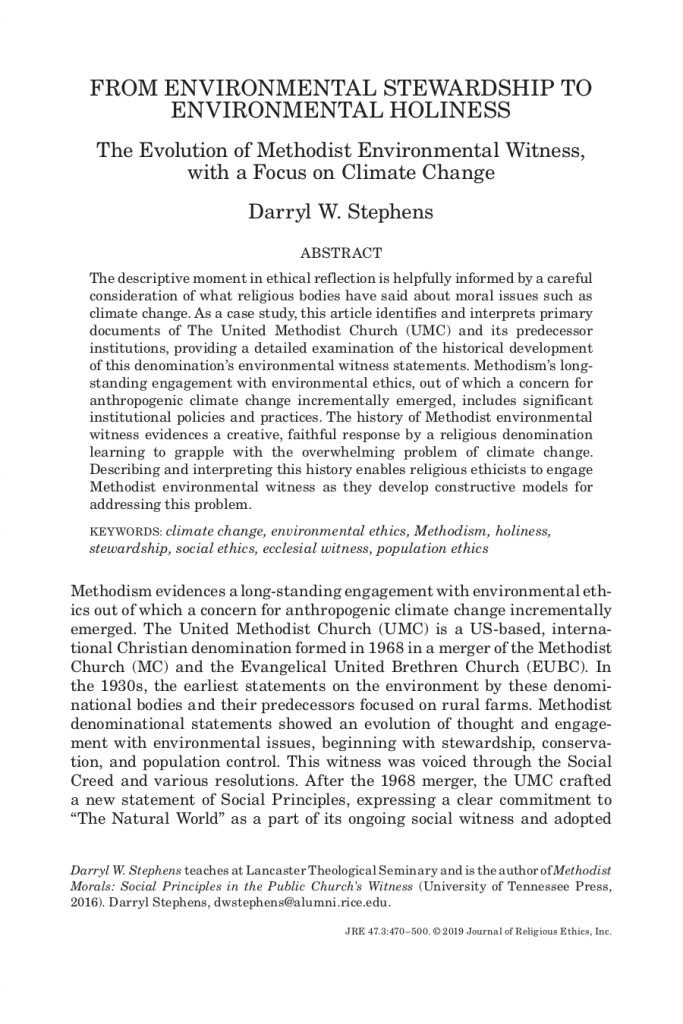Churches of all traditions proclaim important witnesses regarding climate change and other aspects of environmental ethics. For a deep historical dive into United Methodist environmental witness, see chapter eight in my new book Reckoning Methodism: Mission and Division in the Public Church.
Here is a portion of my ongoing research:
Ecumenical Environmental Witness

“Prospects for Ecumenical Ethical Witness: Confronting Climate Degradation,” co-authored with Christian Iosso and Roger A. Willer. Ecumenical Review 70:4 (Dec 2018): 772–87. DOI: https://doi.org/10.1111/erev.12400.
Corresponding author: Darryl W. Stephens
Ecumenical ethics is in need of a methodology for identifying when a common moral witness exists across communions despite apparent dissimilarities. This article illustrates, via the case of ecological witness, the promise of internally differentiated convergence as a conceptual catalyst for that identification. Differentiated convergence is linked here with a multi-dimensional account of ethics to enable close examination of the ecclesial documents of the Evangelical Lutheran Church in America (ELCA), the Presbyterian Church (PCUSA), and The United Methodist Church (UMC)—three traditions whose diverse ethical approaches and positions historically have been sources of ecumenical disagreement and contention. This investigation results in: 1) the demonstration of a convergent ecumenical witness on the issue of climate change and 2) a methodological contribution to ecumenical ethics.
Methodist Environmental Witness
Darryl W. Stephens, “From Environmental Stewardship to Environmental Holiness: The Evolution of Methodist Environmental Witness, with a Focus on Climate Change,” Journal of Religious Ethics 47:3 (September 2019): 470–500.

The history of Methodist environmental witness provides an important resource for responding to global climate change in a highly polarized and politicized social context, addressing many aspects of the issue we face today. For example, Methodism’s long-standing recognition of science as a valid and important source for moral inquiry naturally leads to taking seriously the current global scientific consensus about anthropogenic climate change. To reject scientific findings would necessitate rewriting much of Methodist witness and its history. Methodism’s ambivalence about technology provides both caution and hope for technological solutions to moral problems. To embrace technology unquestioningly would be counter to what Methodists have learned over many generations. Concern for the poor and oppressed, including attention to racial and colonialist practices of consumption and pollution, sheds light on those persons, peoples, and nations that cannot afford to avoid the calamitous results of a warming atmosphere. To ignore the poor would be a rejection of central features of Methodist identity. Furthermore, attention to both structural and individual causes and actions requires a form of holiness that encompasses the WCC and UN as well as the individual’s choices on a daily basis. Holding the systemic and personal aspects in tension is an essential characteristic of Methodist social witness.
United Methodist environmental witness privileges biblical understandings of justice and sustainability even as it relies heavily on scientific findings, particularly as expressed through the United Nations (UN), and the best of ecumenical insights as expressed through the World Council of Churches (WCC). Just, sustainable, “abundant living” encompasses concern for the poor, individual worth and equality, human rights and basic goods, and the opportunity for full human flourishing. Through numerous resolutions adopted every four years, the UMC recognizes environmental stewardship as part of a complex of interconnected social, political, and economic issues, rooted in God’s vision of shalom for all of creation.
Above excerpts from Darryl W. Stephens, “From Environmental Stewardship to Environmental Holiness: The Evolution of Methodist Environmental Witness, with a Focus on Climate Change,” Journal of Religious Ethics 47:3 (September 2019): 470–500.